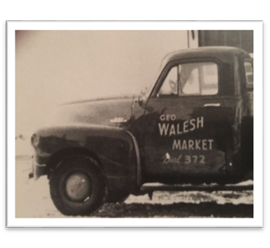|
Sometimes, in spite of what we perceive to be careful, well-intentioned efforts to address and plan for the “people side” of our projects and other endeavors, some of the participants’ actions, or inactions, appear totally contrary to what we had agreed upon or expected. Disappointment leads to frustration, which fuels anger. We want to tell them off, kick get them off our team, or worse.
Similar situations arise in the retail and service industries. We agree to pay what we consider a fair price for a product or service. What we receive falls far short of what we expected. Once again, disappointment leads to frustration, which fuels anger, and we begin to consider rash action.

Time out. Instead of using force, consider finesse. While telling them off, kicking them out, demanding a refund, and/or stomping out in anger may be personally satisfying in the short run, a more subtle approach could be more effective in the long run.
Consider an example from my childhood. Mom and Dad owned and operated, side-by-side, a small corner meat market and grocery store when I was in school. Walesh Market featured fresh-cut meats, homemade sausages, free delivery, and personal charge accounts.
Typically, when my school day ended, I would go to the store. Mom would then drive home to prepare dinner while Dad and I stayed behind to clean up, close out the cash register, and lock up. Then we would get in our pick-up truck, with “Geo. Walesh Market” boldly painted on the doors, and drive home.

The market was on the “north end,” the well-to-do side of our town, and we lived about two miles away on the “south side,” the more modest side of town. Whether Dad or I drove, we always took one of two direct routes from the store to our home.
However, every now and then Dad would take, or ask me to take, a circuitous, longer route. On these routes, the approach was to slow down while passing certain homes; sometimes pulling over and stopping directly in front of a house. Dad would walk up to the front door, knock or ring the doorbell, and talk briefly with an occupant.
I finally figured out Dad’s subtle tactic. A few customers owed him money, had not been in the store for some time, and failed to make payments. Given our small town environment, Dad knew his customers and where they lived. Circuitous routes included driving to those homes.
If the occupant appeared to be home, and especially if they seemed to “have company,” Dad walked to the door to state, or be prepared to state, why he was there. They probably knew what he wanted given my Dad’s presence backed up by the clearly visible truck parked at the curb with his name emblazoned on the door. Out of a sense of obligation, or perhaps fear of embarrassment in front of their guests or family, the occupant usually paid off the debt, or at least made partial payment.
Dad told me that once, on a Saturday afternoon, when I was not with him, he stopped by one of his debtors and stumbled onto a family picnic in the backyard. The host, on seeing Dad approach, quickly and quietly met Dad halfway between the truck and the partying group and paid the debt.
Dad rarely exhibited disappointment, frustration, or anger. Determined to be paid, he applied a simple, low-key way to accomplish his goal. After 25 years in business, Mom and Dad lost only several hundred dollars to bad debts.
When we are tempted to “tell them off” or otherwise “bring out the big guns,” whether in our professional, community, family or other lives, let’s look at other options. Confirm our understanding of the situation, consider some of the admirable aspects of human nature, and, if warranted, thoughtfully apply finesse, not force.
Notes:
Want to learn more about communication, personal development, and other non-technical or professional practice aspects of engineering? Over 20 of my archived webinars, all of which can be used to earn PDHs, are available here.
To discuss any aspect of professional practice, contact me at stu-walesh@comcast.net or 219-242-1704.
First image courtesy of Pixabay.
Learn More About Stu Walesh | Clients Served | Testimonials & Reviews
Managing and Leading Books | Tailored Education & Training
Home | Legal Notice | Privacy Statement | Site Map
Copyright © Stuart G. Walesh Ph.D. P.E. Dist.M.ASCE
Web Site Design, Hosting & Maintenance By Catalyst Marketing / Worryfree Websites |

